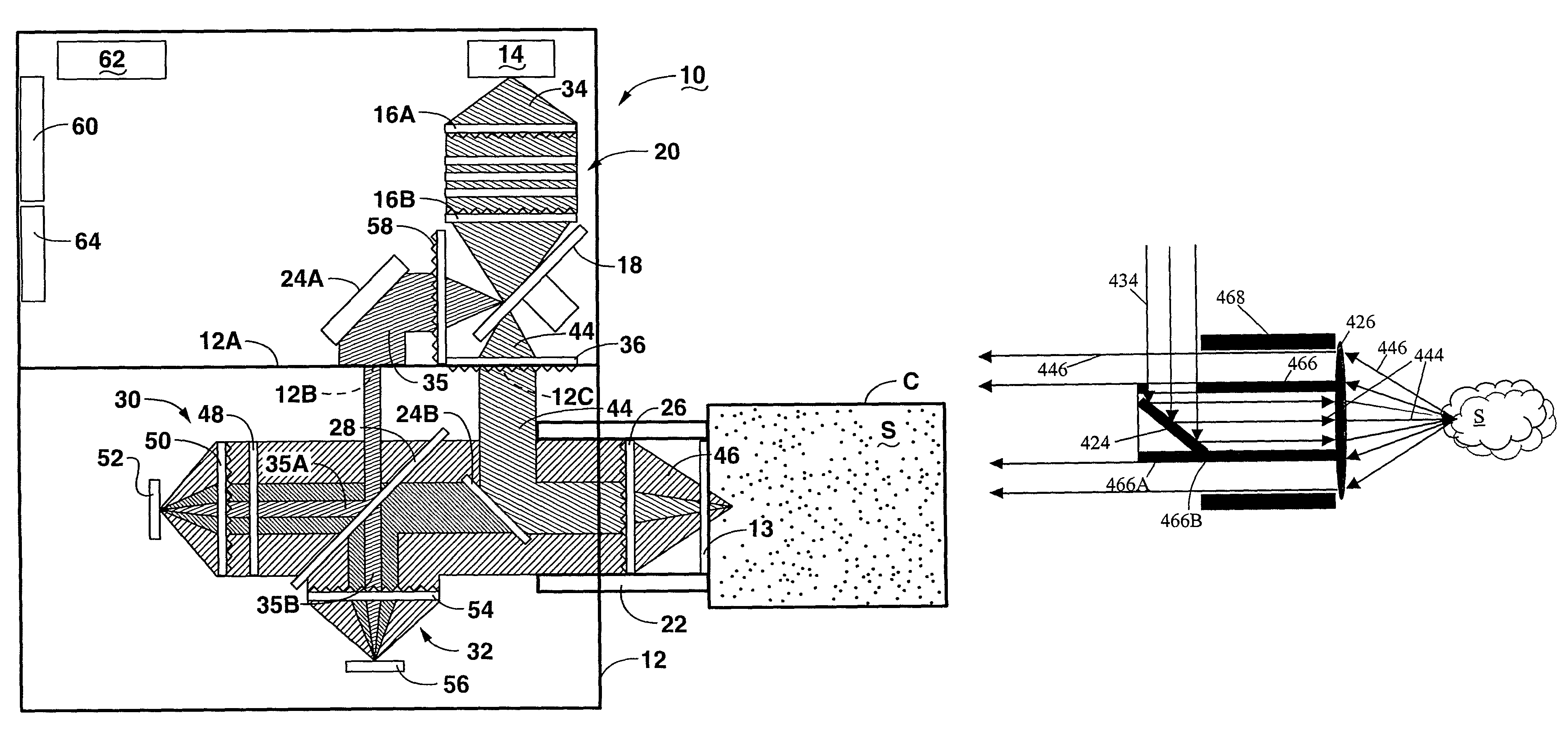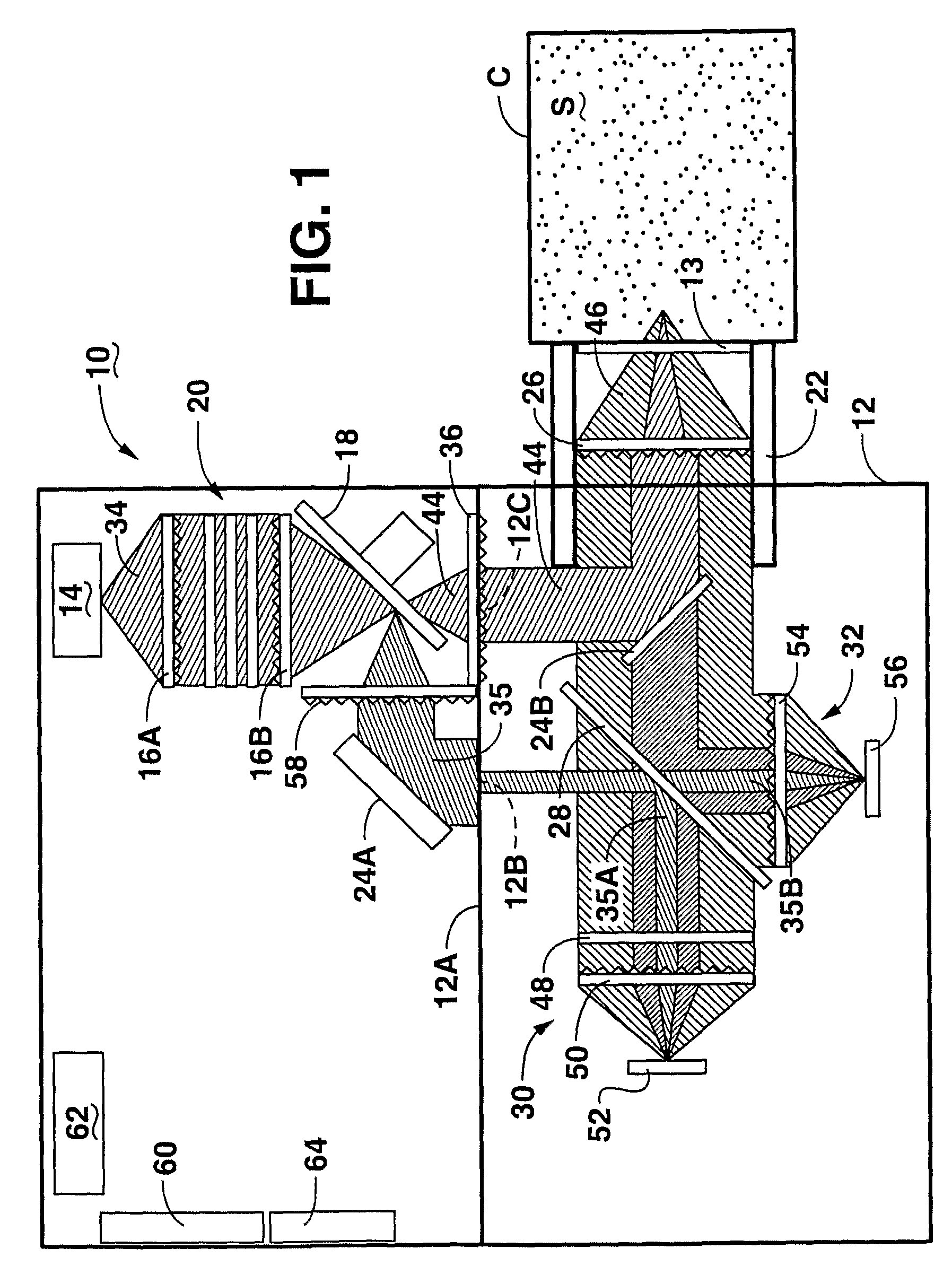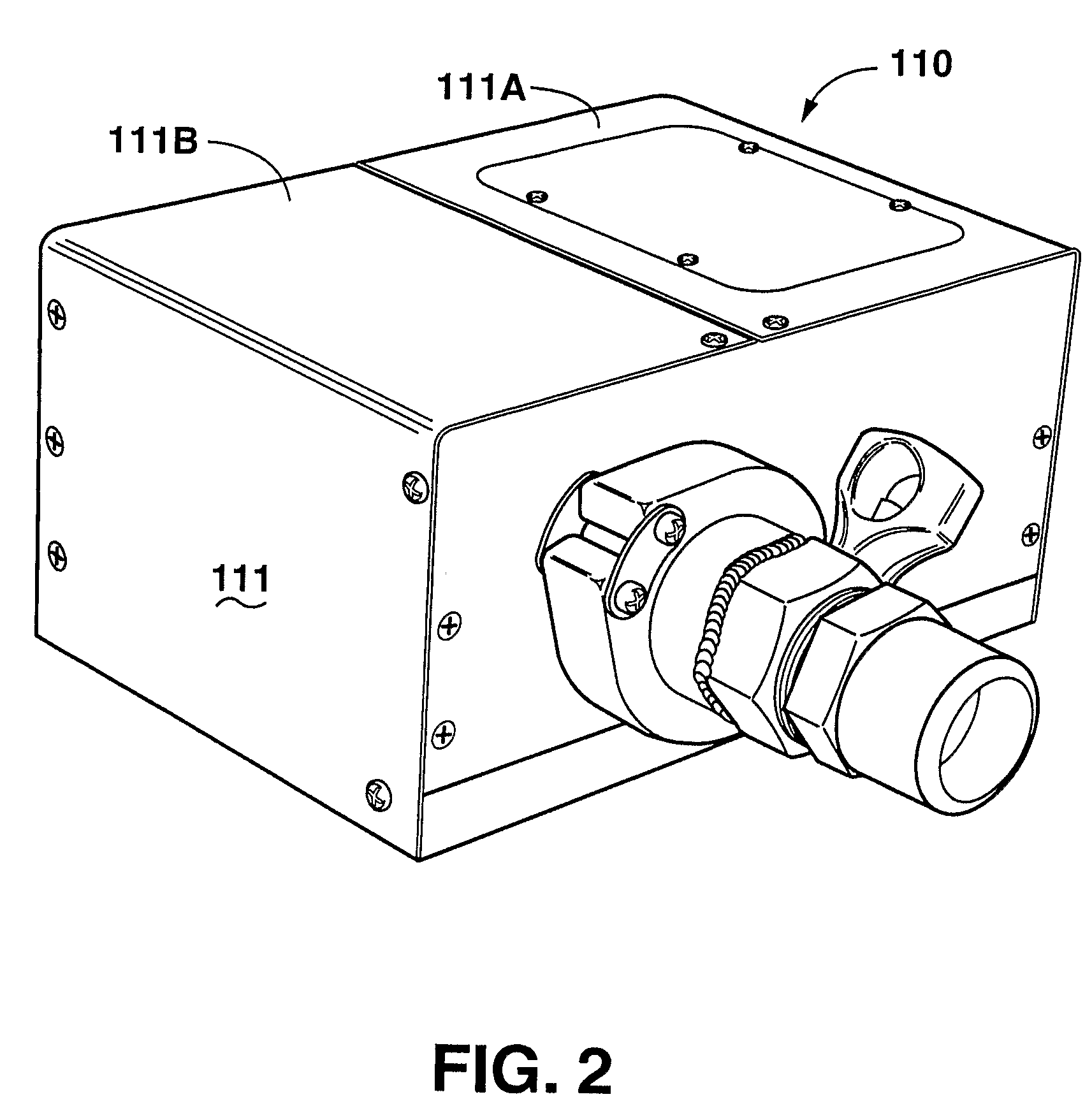Optical analysis system and optical train
an analysis system and optical train technology, applied in the direction of optical radiation measurement, instruments, spectrometry/spectrophotometry/monochromators, etc., can solve the problems of inability to accurately measure the data relating to one, unacceptably inaccurate estimation, and difficult conversion of simple light intensity measurement to information. to achieve the effect of reducing light loss
- Summary
- Abstract
- Description
- Claims
- Application Information
AI Technical Summary
Benefits of technology
Problems solved by technology
Method used
Image
Examples
example 1
[0094]The breadboard system 210 introduced above with respect to FIG. 6 was used to measure concentrations of various sample mixtures 5. The system 210 was configured based on the mixtures being tested. An exemplary configuration of the system 210 included:[0095]Illumination: 20 w GILWAY lamp[0096]Spectral elements: 5 mm deuterium oxide (D2O), 5 mm Germanium[0097]Optical window: fiber optic probe[0098]Detector: InAr detector from Judson[0099]MOE: specific to test
example 2
[0100]The system 110 introduced above with respect to FIG. 2 was used to make measurements on a mixture of aspirin and lactose as well as various other sample mixtures 5. The system 110 was configured based on the mixture being tested. The aspirin / lactose testing was performed using static testing in which the powdered sample with a known composition was placed in a dish and the system light beam was focused on the powdered sample. The output of the detectors was monitored and recorded. The aspirin / lactose samples covering the range of 100% aspirin to 100% lactose were tested. An exemplary configuration of the system 110 included:[0101]Illumination: 20 w GILWAY lamp[0102]Spectral elements: 5 mm D2O, 5 mm Germanium[0103]Optical window: none[0104]Detector: PbS detector from New England Photoconductor[0105]MOE: specific to test conditions
example 3
[0106]The system 110 was used again to make measurements on a mixture of aspirin and lactose. The system 110 was configured based on the mixture being tested. The aspirin / lactose testing was performed using dynamic conditions in which the lactose powder was placed in the bowl of a mixer and the measurement system was attached to the bowl using a Swagelok® brand connector / fitting. A sapphire window was used to contain the powder in the bowl and allow the system 110 to interrogate the powder. With the mixer turning, known amounts of aspirin were added and the system output signal was monitored and recorded. Aspirin was added in several allotments to about 37% final aspirin concentration. The configuration of the system 110 used in this example included:[0107]Illumination: 20 w Gilway lamp[0108]Spectral elements: 5 mm D2O, 5 mm Germanium[0109]Optical window: sapphire window[0110]Detector: PbS detector from New England Photoconductor[0111]MOE: specific to test conditions
PUM
 Login to View More
Login to View More Abstract
Description
Claims
Application Information
 Login to View More
Login to View More - R&D
- Intellectual Property
- Life Sciences
- Materials
- Tech Scout
- Unparalleled Data Quality
- Higher Quality Content
- 60% Fewer Hallucinations
Browse by: Latest US Patents, China's latest patents, Technical Efficacy Thesaurus, Application Domain, Technology Topic, Popular Technical Reports.
© 2025 PatSnap. All rights reserved.Legal|Privacy policy|Modern Slavery Act Transparency Statement|Sitemap|About US| Contact US: help@patsnap.com



